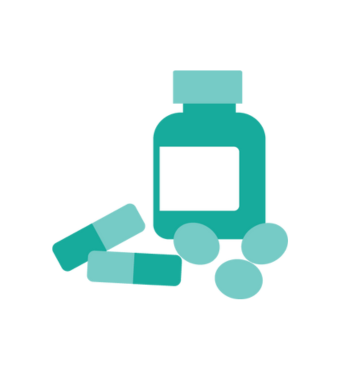
Discharge home
You will be given verbal information about wound care and pain relief and there is written information further down this page.
Day surgery staff will inform your escort when you are ready to go home. It is important that they are available to collect you and stay with you. We expect that you will go home the same day. However, if there are complications such as severe pain or sickness you may have to stay in hospital overnight. If you do have any problems when you arrive home, contact your district nurse or your own GP or NHS 111 Service.
We advise for 24 hours you should not:
- Drive your car or any other vehicle.
- Cook or operate machinery.
- Drink alcohol or take sleeping tablets.
- Do not make important decisions or sign legal documents for 24 hours.
- Take sole charge of children.
Wound care
- Keep your wound clean and dry until your stitches have dissolved/are removed.
- If you have had a local anaesthetic take your own pain medication as necessary.
- If you experience prolonged bleeding, severe pain or increased amount of swelling contact your GP or the NHS 111 service.

Painkillers
Good pain relief after your operation will boost your recovery. It will help you sleep, keep you active and reduce the chance of complications. You should not suffer pain after your operation.
You must take your painkillers regularly for the first 48 hours after surgery, even if you have no pain. If your pain is severe and not improving with the painkillers we have provided, you must contact your GP or surgical team.
Your anaesthetist will make a pain relief plan for you and your mediroom nurse or practitioner will explain it to you before you go home. Some of the medications will be provided and others you will need to purchase from a pharmacy, your local chemist or supermarket.
Paracetamol
This is a good painkiller for the type of surgery you have had.
We recommend you take 2 x 500mg tablets regularly 4 times a day for 1 or 2 days, but please check the label of the paracetamol you’ve bought and follow the instructions. If you have been given paracetamol prescribed by your anaesthetist before your operation, please remember it is perfectly safe to take 2 x 500mg tablets every 6 hours.
Remember not to take any other tablets containing paracetamol, such as co-dydramol or co-codamol. You should take these tablets even if you have no pain, as they will keep the pain away. Paracetamol works in a unique way and will work with other painkillers.
You will be advised on the time your next dose is due.
Ibuprofen
This is an anti-inflammatory painkiller.
The dose is normally 1 x 400mg tablet 3 times a day, but check the label of the preparation you have. If you can take ibuprofen, it should be taken regularly with paracetamol. Do not take ibuprofen at the same time as other anti-inflammatories such as aspirin, Nurofen, Brufen or Naproxen.
Ibuprofen has few side effects:
- It can sometimes cause indigestion, so they should be taken with food. If you develop indigestion or abdominal pain, stop taking them.
- If they make you wheezy or breathless stop taking them.
If you are not sure if you can have them please read the label or ask your mediroom nurse or practitioner.
Anti-inflammatory tablets can be taken at the same time as codeine phosphate and will improve your pain relief.
You will be advised on the time your next dose is due.
Codeine phosphate (30mg tablets)
Some patients will be given codeine to have on top of their paracetamol and/or ibuprofen. If you should already be taking these regularly you should continue to do so, otherwise you do not have to take codeine.
You do not have to take codeine regularly, it is a stronger painkiller which can be helpful if regular paracetamol and/or ibuprofen are not enough on their own to help with your pain.
Codeine may have side effects such as nausea, drowsiness, dizziness or constipation (taking plenty of fluids and some fruit helps avoid constipation). If, however, the side effects are unpleasant, stop taking them and consult your GP or pharmacist.
1 or 2 codeine tablets can be taken up to 4 times a day for added pain relief. Do not exceed the prescribed dose.
You will be advised on the time your next dose is due.
Anti-sickness
Acupressure has been shown to work as well as anti-sickness medications, in treating and preventing nausea. You can do this at home, by pressing on the P6 point: 3 centimetres above the wrist crease in the middle of the palm side of your arm. Watch a video on relieving nausea.
If you are at risk of feeling sick, you will be given some Ondansetron (4mg) tablets. This is an anti-sickness tablet, which can be taken up to three times per day and used alongside acupressure. Take as directed: 1 x 4mg tablets every 8 hours. If the nausea persists, please contact us or your GP.
You will be advised on the time your next dose is due.
If you are already on long term painkillers, you may need to stop taking them while you are taking these tablets. Please check with your mediroom nurse or practitioner before you leave the hospital.
If you or the individual you are caring for need support reading this leaflet please ask a member of staff for advice.
If you’re an overseas visitor, you may need to pay for your treatment or you could face fraud or bribery charges, so please contact the overseas office:
- Tel: 0117 414 3764
- Email: overseas.patients@nbt.nhs.uk
